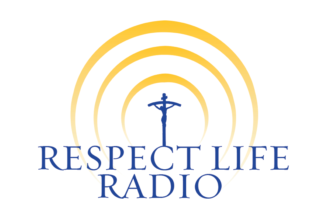
These remarks are occasioned by Cdl. Farrell’s recent musings toward, it seems, admitting the Church’s inability to bless the sacramental marriages of same-sex couples but suggesting the possibility of blessing their non-sacramental or civil marriages (?) but, rather than sort through all that, let’s set out some distinctions crucial to discussions of marriage, sacramental and civil, among Catholics and briefly call attention, once again, to a major factor contributing to the Church’s apparent incoherence in this area.
1. Marriage is an institution that, by natural law (binding on all human beings) and divine revelation (binding on believers), can exist only between one man and one woman. Everything else one says about marriage, no matter who says it, including about the purposes of marriage, the duration of marriage, the religious and/or civil requirements and ceremonies for entering and ending marriage, the sacramentality of certain marriages, some apparent historical anomalies among the foregoing, the question of marriage nullity, everything else about marriage assumes the man-woman relationship.
2. Whenever marriage is entered into between two Christians (not just Catholics, mind), that marriage is not ‘merely’ (if I may put it that way) marriage as understood by natural law—although it is still virtually everything that marriage is by natural law—it is also a sacrament instituted by Christ to give grace. What the Church calls “sacramental marriage”, then, is any and every marriage by natural law that is entered into by two Christians, this, whether that baptized man and woman care about the sacramentality of their marriage (as many Catholics do not) or whether they even know about the sacramentality of their marriage (as most Protestants would not).
3. Setting aside Catholics (and Orthodox) for the moment, the great majority of the world’s population (i.e., some 6 billion folks out of nearly 8 billion) can and do enter marriage as set out in natural law—and that is a wonderful and beautiful thing. Long story made short, whenever any man and any woman, each eligible to enter marriage, freely choose to enter it and do so in some publicly-recognizable manner, they are married according to the natural law whereupon the Church simply and happily recognizes that fact. In canonical terms, the Church accords the “presumption of validity” to all such marriages and, if she is ever asked about them (as happens from time to time), she replies that what looks like a marriage—as understood by natural law—is a marriage until proven otherwise.
But here is where an aspect of Catholic canon law starts to confuse the issue.
4 A) The great majority of the world not being Christian (let alone Catholic), canon law has nothing to say about how most of the world enters natural marriage. As long as the couple is eligible for marriage and freely chooses it, it matters not to the Church whether they do so in a religious or civil ceremony or some combination thereof. The great majority of the world enters natural (if we need that adjective), albeit non-sacramental, marriage and the Church is 100% okay with that.
4 B) Among the 2.5 billion Christians worldwide, just under half of them are not Catholic and so, notwithstanding that marriages among them are sacramental, the Church does not impose on non-Catholic Christians any requirement that they marry in a religious ceremony. The Methodist minister’s son and the Baptist preacher’s daughter, otherwise eligible to marry, can marry according to their religious rites if they want, but, if they run off to the Justice of the Peace to get married, the Church recognizes that action as a wedding and the couple as married—and married sacramentally at that! Thus, a civil marriage between non-Catholic Christians, as long as it is a marriage under natural law, is a sacramental marriage—no matter who, however high up, implies otherwise.
4 C) Catholics, however, by canon law (with a few exceptions), must wed, if they want to marry at all, in accord with what is known technically as “canonical form”, (required sporadically since the Council of Trent, and widely only for the last 100 years), a requirement more commonly called “getting married in the Church”, i.e., in the lovely religious ceremony known as a church wedding. If, but only if, Catholics observe canonical form for marriage, they are married as far as natural law is concerned and, both being baptized, their marriage is a sacrament. Which is nice, of course!
But, if Catholics do not observe this “canonical form” for marriage (and if they don’t fall under one of the few exceptions to that rule), then, the Church does not regard them as married AT ALL, not even “naturally”, let alone sacramentally! This demand for canonical form, binding only Catholics (who have long since found it a simple way to get out what sure looks like, and is, marriage to the rest of the world), notwithstanding the pastoral justifications it might have claimed in times past, is a huge imposition on the exercise of the natural right to marry and, in my view, should be abrogated. In any case, because the failure ‘to marry in the Church’ is most often attempted by Catholics in a civil ceremony, and results in NO MARRIAGE AT ALL, the term “civil marriage” has taken on in Catholic parlance an opprobrium that it does not deserve and indeed flies in the face of the Church’s respect for natural law and the countless good marriages entered according to it. That so many Catholics, including some high-ranking clergy, use the term “civil marriage” as a polite substitute for state-sanctioned shacking-up or, at best, for some second-class kind of marriage, is regrettable, but widespread.
Yes we cut such folks some slack: we Catholics have for several generations talked among ourselves about “civil marriage” as being a big nothing or a pretty close thereto, so that, when the State comes along, as it has in most of the West, and says that it will recognize as married persons of the same-sex (contrary to natural law, not to mention divine revelation), many Catholics casually, but quite inaccurately, pooh-pooh that recognition as a something ‘out there’ in the world but of no concern for us in the church. In short, we are tempted to say, who cares?
Well, we should care. How the State treats marriage, even “civil marriage”, is of great concern to the common good, and Catholics can bring much insight to that discussion. One major way for us to care about that matter is for those in ecclesial leadership positions to speak more accurately about marriage, both natural and sacramental, whether entered into civilly or religiously. Eventually, another way to serve the ecclesial and civil common good is, I hold, for the Church to drop the confusing, unnecessary, and liable-to-great-abuse requirement of canonical form for marriage among Roman Catholics, but that discussion is for another time.
First, let’s all speak and think more clearly about what the marriage situation is now.
Join Our Telegram Group : Salvation & Prosperity









